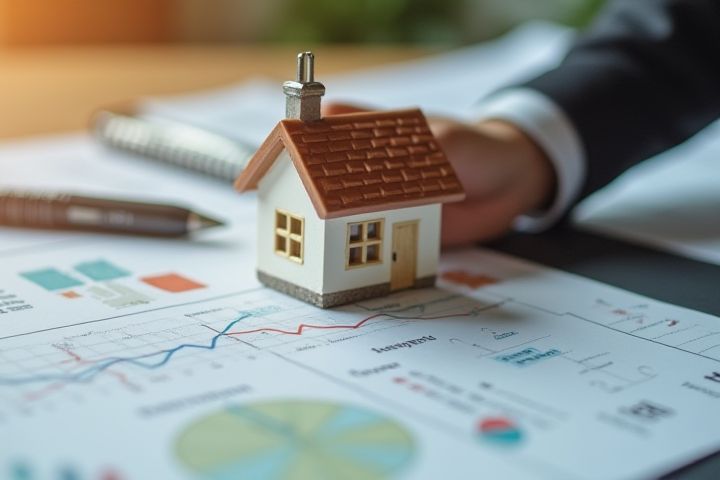
House appraisals aim to provide an unbiased estimate of a property's market value based on various factors such as location, condition, and comparable property sales, but they can vary in accuracy. Appraisers consider the home's age, square footage, amenities, and nearby community trends to formulate their assessments. Market fluctuations, recent renovations, or lack of comparable sales can also influence the appraisal outcome. For you, understanding these elements can help you gauge whether an appraisal reflects your property's true worth. While they are generally reliable, it's wise to consult with real estate professionals for additional insights and confirmations.
Are House Appraisals Accurate
Subjective nature affects value.
House appraisals can vary significantly due to their subjective nature, impacting the perceived value of the property. Factors such as location, condition, and recent comparable sales all contribute to an appraiser's assessment, but personal biases or differing methodologies can influence outcomes. For example, an appraisal might estimate a home at $300,000, while another appraiser could evaluate it at $280,000 based on individual interpretations. This variability means that your home's value may differ widely depending on the appraiser's experience and opinions, emphasizing the importance of choosing a qualified professional.
Comparables influence results.
House appraisals can be significantly influenced by comparables, or "comps," which are recent sales of similar properties in the area. These comparables provide a baseline for determining the fair market value of a home, reflecting local trends and market conditions. Appraisers consider key factors such as square footage, bedroom and bathroom counts, and overall property condition, often weighing these elements to produce a more accurate value. Your home's appraisal can vary depending on the specific comps used, emphasizing the importance of choosing relevant and recent sales in the analysis.
Market conditions affect accuracy.
House appraisals are influenced by various market conditions, making their accuracy variable. Factors such as supply and demand dynamics, recent comparable sales, and economic indicators can significantly impact the final appraisal value. When market conditions are highly volatile, appraisers may struggle to provide an accurate assessment, leading to discrepancies between appraisal values and actual sale prices. Understanding these influencing factors helps you gauge the reliability of an appraisal in your home buying or selling process.
Unique features may be undervalued.
House appraisals often rely on standardized metrics that can overlook unique features of a property, such as bespoke architectural designs, custom finishes, or energy-efficient upgrades. These distinctive attributes can significantly enhance a home's market value, yet they may not be adequately reflected in traditional appraisal assessments. When considering your property's worth, it's crucial to emphasize these unique aspects to ensure a fair evaluation. Understanding this potential undervaluation can empower you to negotiate better when selling your home or applying for a mortgage.
Appraiser experience varies.
House appraisals can vary significantly in accuracy, largely influenced by the appraiser's experience and expertise. A seasoned appraiser brings a wealth of market knowledge, allowing for more precise assessments of property values. In contrast, less experienced appraisers may overlook crucial factors, resulting in inflated or deflated appraisals. Understanding an appraiser's background can help you gauge the reliability of their valuation and inform your real estate decisions.
Condition of the property matters.
The condition of the property significantly influences the accuracy of house appraisals. Inspectors evaluate various factors, including structural integrity, interior and exterior condition, and any necessary repairs or renovations. A well-maintained property typically receives a higher appraisal value, reflecting its market appeal and longevity. For homeowners, addressing maintenance issues before an appraisal can enhance your property's perceived value and ensure a more favorable assessment.
Location impacts appraisal.
Location significantly impacts house appraisals, influencing market value and buyer demand. Properties situated in desirable neighborhoods with access to quality schools, parks, and amenities often command higher appraisals, potentially exceeding 10% of the average market value. For instance, homes in urban areas tend to appraise higher than those in rural settings due to proximity to job opportunities and cultural attractions. Understanding the local real estate trends and factors affecting your specific area can help you assess the accuracy of an appraisal.
Appraisals are point-in-time assessments.
Appraisals are point-in-time assessments that determine a property's market value based on various factors such as location, size, condition, and comparable sales in the area. Typically, an appraiser evaluates these elements using standardized methodologies and guidelines, often resulting in a reliable estimate of value. However, market conditions can change rapidly--sometimes within weeks--making an appraisal less accurate if significant external factors shift after the assessment. If you're considering buying or selling a home, understanding that these appraisals reflect a snapshot in time and may need periodic updates is crucial.
Renovations can enhance value.
House appraisals can vary in accuracy based on several factors, including recent renovations which significantly enhance property value. Upgrades such as kitchen remodels, bathroom additions, or energy-efficient installations typically result in a higher appraisal due to increased curb appeal and functionality. Measured improvements can attract potential buyers, reflecting positively in the market analysis conducted by appraisers. To maximize your home's appraisal value, consider investing in quality renovations that align with current market trends and buyer preferences.
External factors can skew results.
House appraisals often reflect external factors such as location, neighborhood trends, and economic conditions, which can significantly influence property values. For instance, homes located near reputable schools may see an increased appraisal value of 10-15% compared to similar properties in less desirable areas. Market fluctuations, like a 5% increase in local housing demand, can also lead appraisers to adjust their evaluations based on current sales data. Your appraisal might not always capture the unique attributes of your home if external influences dominate the assessment process.
